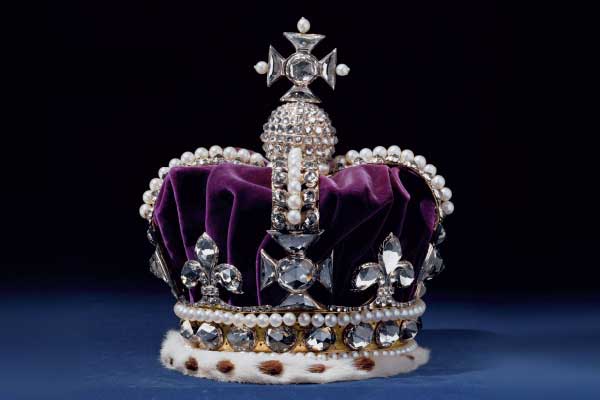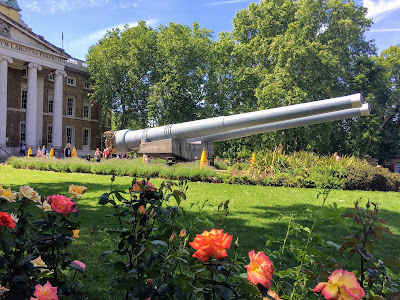“Mummy, I am not going to
queue for half an hour to see some crown jewels,” the ten-year-old in front of
me declared in disgust. “If I do, I’ll die.”
“No
one has ever died from a little queueing,” the mother assured him, and off they
went to queue.
I
hesitated before following. I didn’t blame the little tyke for his reticence.
If his experience visiting the Tower of London had been anything like mine,
then he’d probably queued patiently at various locations for half the day.
But
still, it was the crown jewels! Could
there be anything more quintessentially British than queuing to see crown
jewels?
In
the end, I decided the now-hour-long wait to see the jewels was worth it.
It
seemed like hundreds of people were there, but, in true British fashion, the
crowd was calm and well-ordered. Our queue moved us through like a well-oiled
machine. And we all stayed neatly in our little line right up to when we
officially entered the museum-like exhibit where . . . we continued to stay in
our neat little line throughout the entirety of the exhibit.
As
the glitzy diamonds appeared, there was no shoving or jostling. Not the
slightest hint of a head craning to see any artifact, either, because everyone
got their turn to see everything as we filed slowly past in a row. It was
peaceful.
I’m
not surprised, though. It seems the British have always had a talent for
drawing order out of disorder.
From
the hope and aspirations their first fleets of explorers carried as they sailed
out to conquer the globe to the majesty and girth of scientific progress in the
Empire’s golden age, being British has always, in part, meant organizing the
world by rational laws.
Enlightenment
thinkers believed that the answers to life, the universe, and everything lay
within humanity’s grasp. Death bowed down as medicine advanced. The planet
shrunk as modes of transportation improved. With eyes straining to the horizon,
and hearts filled with patriotic fever, the Brits laid Science across the world
like a measuring stick, and the world lined up to satisfy.
Statue in the entry hall of Westminster Palace
Their
enormous colonialist success contributed to a strong national identity. More
than just individuals, the British people saw themselves as part of a group—an
intelligent, brave, and hearty group.
When
the Great War broke out, it was a small thing for the empire to leverage this
patriotism to mobilize the whole of the country and its commonwealths into a powerful,
unified force against the Germans. The national identity that had lent itself
so well to expanding across the globe and pursuing scientific discovery turned
as a single entity to fighting the war.
Civilians,
soldiers, and politicians pulled together. The great national genius that had
established an empire now created a fluid assembly line of recruiting,
training, and outfitting thousands upon thousands of troops.
To
be a Brit meant doing one’s part against the central powers, which, from a
larger perspective, meant doing one’s part against the forces of evil combining
to swallow the continent whole.
Britain
lived together, it died together, and it won together.
A pair of naval guns outside the Imperial War Museum in London
Thankfully,
the world wars are decades behind us now. But the British identity has not
faded with time. London especially, with so many different cultures putting
down roots inside its borders, continues to be a place of teamwork and altruism.
To be a Brit still means working together towards the common goal of a better
world.
Trooping of the Colors outside Buckingham Palace
With
that in mind, queuing is simply a natural extension of viewing others as part
of oneself. After all, a good queue can only be maintained by the common
consent and respect for others’ needs held by every single person in the line. A
queue reflects the British love for order, efficiency, and fairness.
Interestingly
enough, just like in a queue, with so many differing viewpoints, forward
progress in life can only be achieved through the same principles of respect
for others’ needs and a consensual goal in mind.
Perhaps
Britain’s queuing is more than just a means of waiting. Perhaps it is also a
means of acting, of leading, of showing the world how quickly and pleasantly
things can get done when we all agree to abide by rules that help everyone.
London builds the future from the past








No comments:
Post a Comment